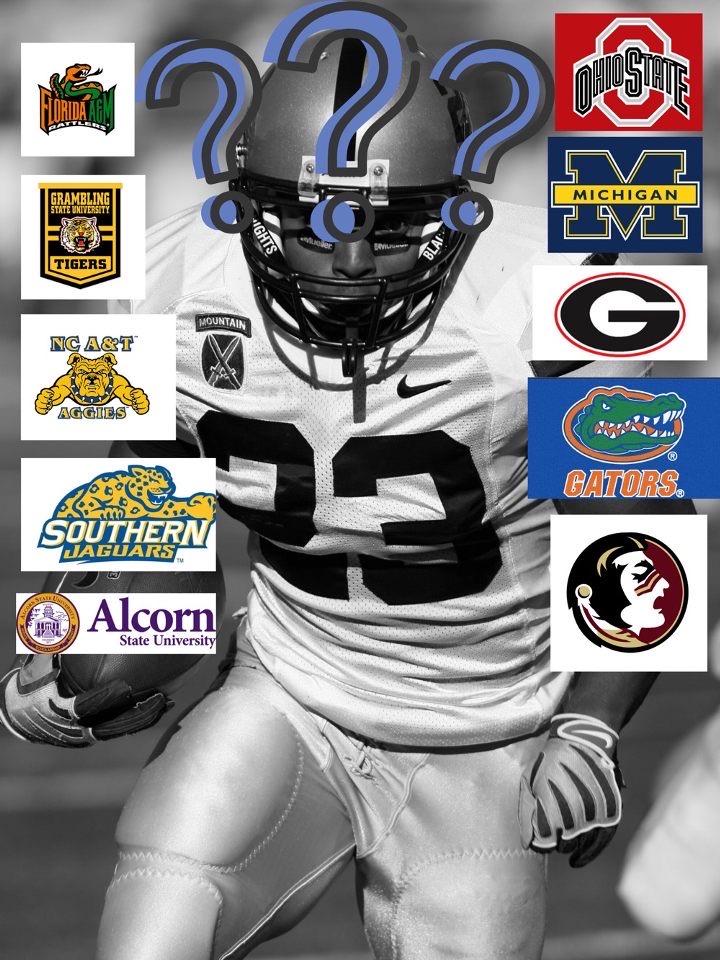In the wake of the global issues of police brutality and ongoing racial discrimination among African Americans, should African American athletes consider attending Historically Black Colleges and Universities [HBCUs] over opportunities at Predominantly White Institutions [PWIs]? This topic has sparked ongoing conversation, thanks to a viral tweet shared by San Ysidro High School’s Mikey Williams, the San Diego-based, nation’s best 15-year old basketball player.
On June 2, 2020 Williams sent out a simple eight-word tweet which read: Going to an HBCU wouldn’t be too bad…”
Mikey Williams, highly regarded as the No. 1 player in the c/o 2023, is looking to be a leader of change. @619CONFIDENTIAL pic.twitter.com/Z1ERH0D4m9
— ESPN (@espn) June 3, 2020
When most people think about giving up opportunities, most times they think about missing a deadline or not taking full advantage of something at our fingertips. Ideally, in life, sometimes individuals choose the culture of an experience over opportunity.
But where does one draw the line to accept opportunity over culture?
In present-day America, globally, there is an overarching idea that when an athlete chooses a college, they’re making a decision based on who will provide the most money and most exposure and advancement for their careers. However, due to the current situations going on, it is possible that athletes are making long-term decisions in the spite of what is happening today.
Due to fair treatment, equality, and experience, it is possible there could be a potential spike in the numbers of athletes attending HBCUs. Although this is a plus for the African American community, some athletes could potentially have a stronger opportunity to flourish at a PWI.
The money standpoint is often talked about, but another qualifying factor in college decision-making is the opportunity the school will offer. Making those decisions could also involve facing adversity and inequality, but as some would say, that is what life is all about. A 2019 article in The Atlantic, “It’s Time for Black Athletes to Leave White Colleges” references the multibillion-dollar revenues generated while black athletes remain uncompensated.
While the athletes might not be paid, does this also account for the opportunities they are later offered after college?
Although talent far exceeds the name of a college; the name of the college will always hold a bit of weight. Another statistic taken from the The Atlantic article tells us about 30 Division I schools each bring in at least $100 million in athletic revenue every year. Almost all of these schools are majority white. In fact, black men make up only 2.4 percent of the total undergraduate population of the 65 schools. Yet, black men make up 55 percent of the football players in those conferences, and 56 percent of basketball players. It is evident that even though the players are not being compensated they are most definitely taking advantage of their playing time on the court and field.
Understanding that when an athlete has natural talent, their followers, fan base, and viewers will often follow them to the school of the athlete’s choice. But everyone does not have the same social media impact as others.
Therefore, an athlete with a smaller fan base could maybe take the higher ranked school, depending on how far he wants to go with his athletic career. As some say, money makes the world go round and things could start to change due to the culture, equality, and treatment of African American people and athletes as a whole.
Some will argue the only difference between a Historically Black College and a Predominantly White College is the funding, which is correct, but there is also a sense of unity at an HBCU that some might choose over opportunity.
The question that is being posed is “Which road to take? Do I give up opportunity over culture, or do I follow what is destined for me?”
Always remember to think toward the future, and never let one situation define you or your identity.
VOX Media Cafe reporter Bethany C. Cates, 17, attends Harrison High School in Kennesaw.





This article is terrible. Tell the truth about the mismanagement of money. Poor decisions they constantly make on behalf of their schools.